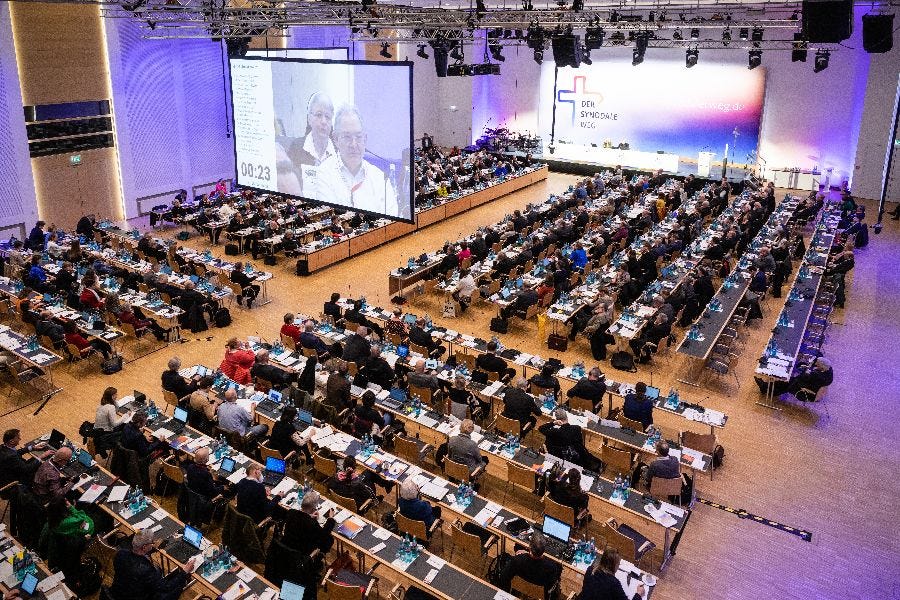German synodal way backs same-sex blessings
Participants voted overwhelmingly in favor of a document calling on bishops to ‘officially allow blessing ceremonies in their dioceses,’ contradicting a 2021 Vatican declaration.

Participants in the synodal way’s final assembly overwhelmingly endorsed a document Friday urging German bishops to permit same-sex blessings officially in their dioceses.
The five-page document, “Blessing ceremonies for couples who love each other,” was passed by 176 votes for, 14 against, and 12 abstentions at its second reading, meaning it was formall…
